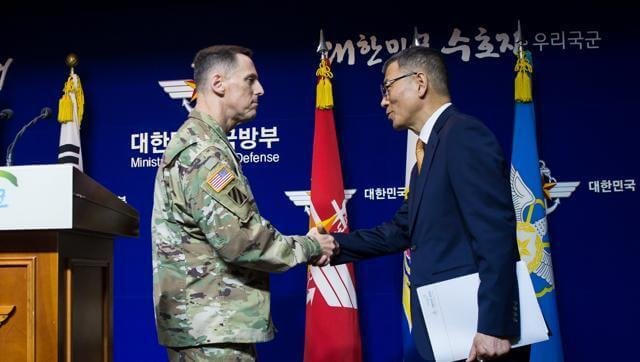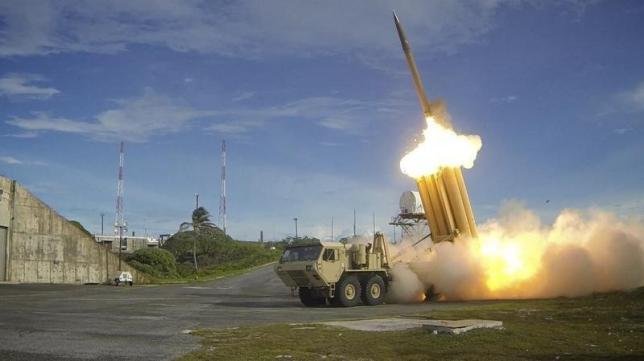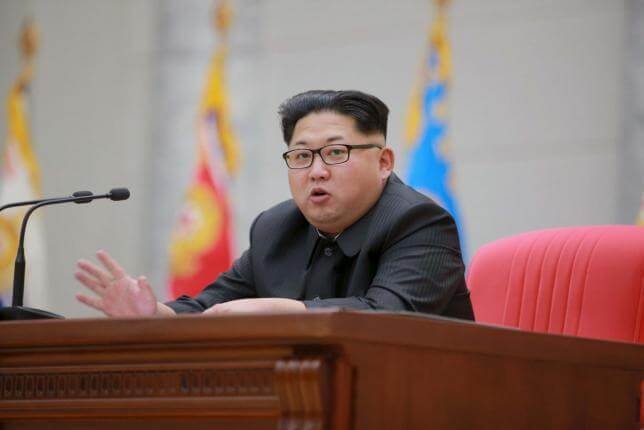China on Friday warned that the plans by the US and South Korea to deploy a missile defence system on the Korean Peninsula may destabilise the region and is not conducive to achieving “denuclearisation”.
The deployment of the Terminal High Altitude Area Defence (THAAD) anti-missile system was taken jointly by the US and South Korea, the Pentagon and the South Korean Defence Ministry has announced in a late night statement on Thursday.
“The Chinese side is strongly dissatisfied with and firmly opposed to this,” China’s Foreign Ministry said in a statement.

The deployment is not conducive to achieving denuclearisation in the peninsula and maintaining its peace and stability, it said.
The move goes against efforts made in calming regional tensions through dialogue and severely harms the security interests of countries in the area including China, as well as the “strategic balance” in the region, it said.
Urging the US and South Korea to terminate the deployment of THAAD, China asked them to “not to take actions which tend to complicate regional situation and harm China’s strategic security interests”.

The Chinese foreign ministry also said that it opposes the imposition of unilateral sanctions after the US announced sanctions on North Korean leader Kim Jong-un for the first time, citing human rights abuses.
“China maintains that human rights issues be handled through constructive dialogue and cooperation on the basis of equality and mutual respect,” Foreign Ministry spokesman Hong Lei said yesterday.
“China opposes public pressurisation, confrontation, one country’s wilful resort to unilateral sanction on another country based on its domestic law and damage to the legitimate and lawful rights and interests of another country,” he said.
An oped article in state-run Global Times in China today said “US sanctions against Kim is bullying and ridiculous”.
“This is the first time that Washington has sanctioned Pyongyang’s top leader for human rights issues rather than nuclear moves,” it said.

“Kim is unlikely to have deposits or other assets in the US, nor will he visit the country. Blacklisting Kim is more like a symbolic move to step up pressure on Pyongyang,” it said.
“But undeniably with the sanctions the US has humiliated North Korea’s top leader in front of international society and threatened Kim and other North Korean officials. This will be considered by Pyongyang as the most provocative move by the US. It won’t help solve the nuclear issue,” it said.
But at the same, it said, “North Korea no doubt has a problem with human rights, however Washington and Pyongyang have polarising opinions over politics and history,” it added.

















